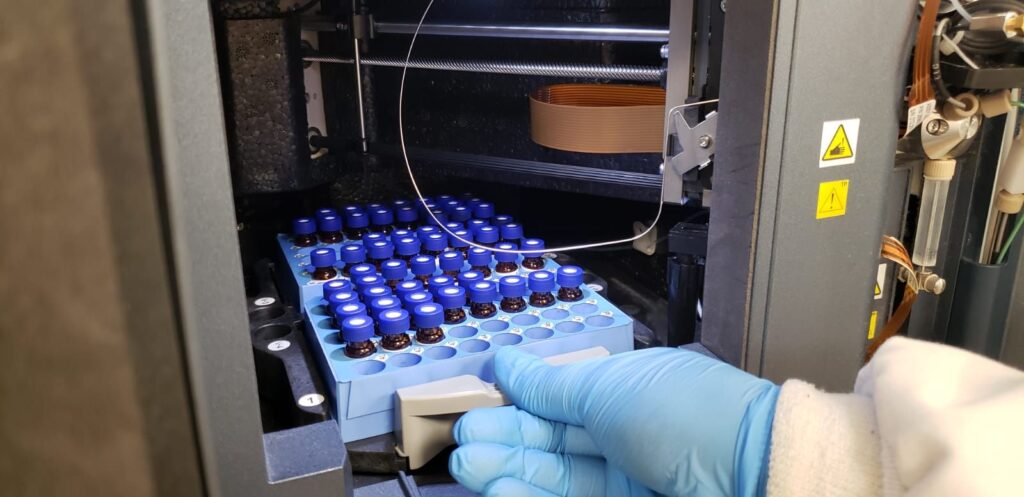A vital tool for the livestock sector that allows direct assessment of the level of intoxication in animals, ensuring the health of livestock and the quality of products on farms.
Lugo. 05/02/2024. In a firm commitment to animal health and the preservation of integrity in livestock farms, the Laboratory specialized in Veterinary Toxicology AMSvet, belonging to the AMSlab Group, based in Lugo, presents its latest innovation in the field of veterinary toxicology: the service of determination of mycotoxins in serum and plasma. In collaboration with Exopol, a laboratory from Zaragoza specialized in veterinary diagnostics and autovaccines, it has developed a method that significantly expands the detection capacity, allowing the analysis of mycotoxins in matrices that until now were not common, such as serum and plasma.
Historically, mycotoxin detection focused on plant matrices, such as feed or forage. However, this advance offers the possibility of confirming whether animals have ingested feed contaminated with mycotoxins, revealing detectable concentrations of these substances or their metabolites in the blood.
Mycotoxins are toxic substances produced by certain types of molds that can contaminate food and pose a risk to both animal and human health. They can cause serious illness, depending on the amount consumed, the duration of exposure and the state of health. Symptoms of acute toxicity include gastrointestinal disorders such as vomiting, diarrhea and liver damage. In the long term, mycotoxins can affect the immune system response.
Therefore, this service is presented as a valuable method to directly assess the level of intoxication in animals by means of a simple blood sample, detecting up to 15 mycotoxins. This advance not only makes it possible to confirm whether animals have ingested food contaminated with mycotoxins, but also to evaluate their direct impact on their health.
The importance of this innovation lies in the current problems associated with the presence of mycotoxins in feed and forage. Exposure to these substances can have devastating consequences, triggering diseases that can significantly decrease production and jeopardize the welfare of livestock. Early detection is crucial, so by performing this type of analysis, farmers take a proactive step towards protecting their animals and the sustainability of their farms.
More information: Bioga Communication Office – 679.486.961.
For BIOGA, it is a priority to promote intersectoral collaboration between entities and to power networking activities, both national and international. If you want to know more about us, please click the following link.
- Bioga exceeds one hundred members and consolidates its position as a reference in the Spanish biotechnology sector
- Glecex, Bioprana, ODS Protein and Limnopharma: chosen by APTE among the top 100 startups of 2023
- BIOGA obtains the recognition of Innovative Business Groupings (IBG) by the Spanish Ministry of Industry and Tourism
- Zendal and IAVI receive funding to advance Spanish tuberculosis vaccine efficacy trial in Africa
- BETA Implants inaugurates its new plant in the industrial park of Veigadaña (Mos)
- Néboda Farms: Industrial innovation and efficiency applied to vertical crops
- Bioga leads IberoBio, a European project to create and propell the Cross-border Biotechnology Pole
- DATAlife attracts more than 22 million euros of investment in digitization for Galicia
- FlowReserve studies a tool to improve heart disease diagnosis
- Hifas da Terra jumps into the pharma industry with Hifas Biologics

